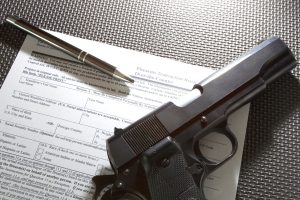Domestic violence charges in Florida carry serious, long-term consequences that extend far beyond a fine or a few days in jail. Many individuals facing these charges may feel overwhelmed, ashamed, or eager to resolve the case quickly, leading them to consider pleading guilty without fully understanding the ramifications. However, doing so can have devastating effects on your future, including restrictions on your personal freedoms, loss of gun rights, employment difficulties, and even deportation for non-citizens. Before making any decisions, it is critical to consult with a skilled Fort Lauderdale criminal defense lawyer who can analyze your case, challenge the evidence, and explore alternatives to conviction.
The Consequences of Pleading Guilty to Domestic Violence in Florida
1. Mandatory Minimum Penalties Under Florida Law
Under Florida Statute 741.283, anyone convicted of domestic battery is subject to mandatory minimum sentencing:
- First offense: A minimum of 10 days in jail.
- Second offense: A minimum of 15 days in jail.
- Third offense or more: A minimum of 20 days in jail.
These penalties increase if a minor was present during the alleged incident.
Beyond jail time, you may also face:
- One year of probation with strict conditions.
- Completion of a 26- to 29-week Batterer’s Intervention Program (BIP) at your own expense.
- Community service hours (often 12 to 29 hours).
- Loss of gun rights due to federal restrictions on domestic violence offenders.
2. A Permanent Criminal Record That Cannot Be Expunged
One of the most severe consequences of pleading guilty is that a domestic violence conviction cannot be sealed or expunged in Florida. Under Florida Statute 943.0584, domestic violence-related convictions remain on your record permanently. This can severely impact:
- Employment opportunities, especially in professions requiring background checks.
- Housing applications, as landlords may deny applicants with a violent criminal record.
- Child custody disputes, where a conviction may be used against you.
3. Loss of Firearm Rights
A conviction for domestic violence automatically triggers a federal firearms ban under 18 U.S.C. § 922(g)(9). This means you will permanently lose your right to own, purchase, or carry a firearm, even for self-defense or professional use. For many individuals, including military personnel and law enforcement officers, this can mean the end of their careers.
4. Immigration Consequences for Non-Citizens
If you are not a U.S. citizen, pleading guilty to domestic violence can have severe immigration consequences. Under 8 U.S.C. § 1227(a)(2)(E), domestic violence is considered a deportable offense. Even a misdemeanor conviction can result in:
- Deportation
- Denial of a green card
- Ineligibility for U.S. citizenship
In many cases, immigration authorities may initiate removal proceedings immediately after a guilty plea.
 Fort Lauderdale Criminal Attorney Blog
Fort Lauderdale Criminal Attorney Blog











